Premium Only Content
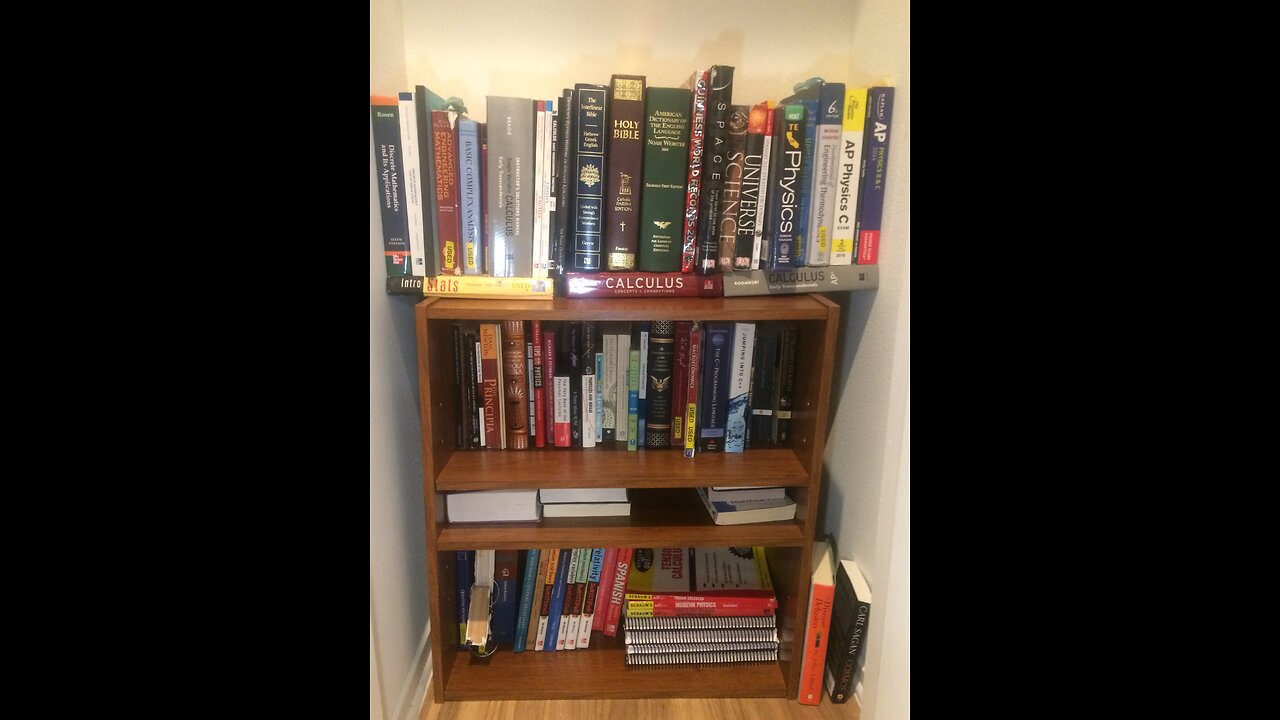
(2) The Biography of Education
https://www.facebook.com/groups/974332723871967/permalink/1045166666788572/?mibextid=rS40aB7S9Ucbxw6v
Chapter 2: The Biography of Education
In a book the words are like nodes that are the same for every person reading the book. However the person reading the book fills in the gaps with his or her own imagination and experience and interpretation. A book therefore has the advantage that the writer is able to utilize the mind of the reader to create things that would be difficult to construct in a movie. In a movie, everyone sees the same images and hears the same sound, but in a book each person imagines his or her own images and sound. The words of the book are like an instruction guide to help the reader’s mind create the experience. The words of the book cannot be too vague or else they will not guide the reader to visualize the story. If the words are too vague, the reader will only process the information intellectually and not visually and emotionally. The words of the book cannot be too detailed otherwise the reader will not have the freedom to imagine the story in his or her own personal way, and it will seem too restrictive, verbose, and impersonal. I always imagined that there is a book in heaven written about each of our lives. The words of the book are the temporal nodes, and our choices are what interprets the events between the temporal nodes. We choose what book to read, and then we choose how to visualize the situations based on our interpretation of the words. The writer does 90 percent of the work by creating the skeleton structure of the story through the words written on the page, and the reader does the other 10 percent of the work by filling in the rest through pure imagination based on experience and creativity.
Throughout my education (in my childhood), I read a number of biographies. I read biographies for all sorts of people from famous sports players, famous scientists, famous political figures, and famous historical figures. In my perspective, biographies were always the best type of book because they allowed the reader to see the big picture of the complete lifespan of a person. It felt like the more biographies I had read, the more lifetimes I had lived. I wonder if there are angels in heaven reading the books about our lives and feel the same way.
https://www.smashwords.com/extreader/read/801194/5/the-teacher-the-terrorists-and-the-temporal-war
In my opinion, no one should write an autobiography without watering it down to be a novel or some other story. It just seems vain to write a book commemorating all the mundane events in your own life that are meaningful to you but inane to others. Not everything is worth recording in exact monotony. A heroic life is often tedious, boring, and full of painful sacrifice and suffering, so a little artistic license can make it legendary, more inspiring, and worth your time to read. Everyone imagines the life of a hero to be full of skill, bravery, and romanticized victory. A heroic person is often just a person simply trying to survive through an impossible situation with his or her integrity and character intact. No hero is ever treated as a hero when he or she is being heroic. A hero’s reputation is the first thing that is always killed before he or she is. All heroes are treated as criminals and some of them are never vindicated until after they are dead. There is always a conflict of interest when someone tries to write an autobiography. If someone writes a self-demoralizing account of themselves, it seems like they have no self-esteem. If someone writes tributes about themselves, it seems like they lack humility. The only way to have humility with self-esteem is to have someone else write a biography about you. Let the praise come from someone else and not yourself. Let the critique come from someone else and not yourself. Self-demoralization conveys a lack of self-esteem and a false-humility. Self-tribute conveys pride and a lack of humility. Humility is not thinking less of yourself, but rather it is thinking of yourself less (and of others more).
The Bible is the biography of Jesus Christ. It tells the origin of the Jewish people, the multiple failed-attempts of the Enemy to destroy the Jewish people, the conception of Jesus Christ by a virgin Jewish woman via the Holy Spirit, and the life, ministry, death, resurrection, and prophesized, past, present, and future destiny of Jesus Christ. Jesus Christ did not write an auto-biography, but allowed other people write the four gospel accounts (Matthew, Mark, Luke, and John). I always like to think of the Bible as a temporal weapon. The smallest change in any part of the Bible would send ripples throughout all time according to the butterfly effect. The Bible is the most influential book in all human history. Someone who hasn’t read the whole Bible cannot begin to understand its effect on the cultures of the earth. Anyone who hasn’t read the entire Bible cannot consider themselves to be truly educated.
https://www.smashwords.com/extreader/read/801194/6/the-teacher-the-terrorists-and-the-temporal-war
-
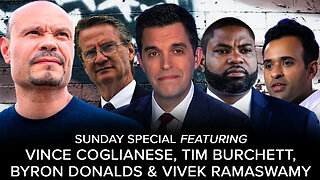 1:02:11
1:02:11
The Dan Bongino Show
22 hours agoSunday Special with Vince Coglianese, Rep. Tim Burchett, Rep. Byron Donalds & Vivek Ramaswamy
196K283 -
 2:29:38
2:29:38
TheSaltyCracker
11 hours agoPiss Off War Pigs ReeEEeE Stream 03-09-25
196K367 -
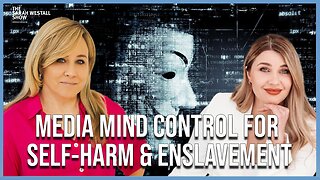 1:03:55
1:03:55
Sarah Westall
13 hours agoCanada Media Mind Control to increase Assisted Suicide, Confusion & Enslavement w/ Jasmin Laine
70.8K16 -
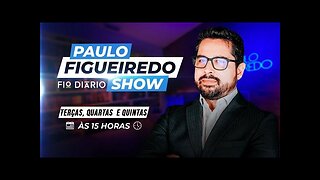 2:41:11
2:41:11
Canal Paulo Figueiredo
2 days agoPedro Valente Debunks The Myths of Jiu-Jitsu History
67.1K8 -
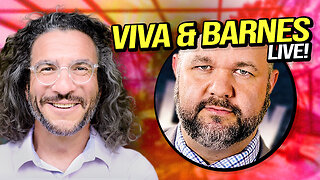 2:01:46
2:01:46
vivafrei
12 hours agoEp. 254: China to Pay $24 BILLION? Who Owns Embryos? Tulsi was RIGHT on Syria! Prorogation & MORE!
171K159 -
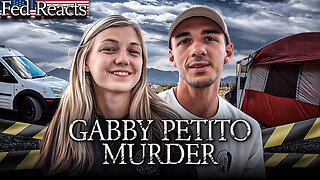 3:40:55
3:40:55
MyronGainesX
22 hours ago $23.39 earnedFormer Fed Explains Gabby Petito's Murder
98.5K40 -
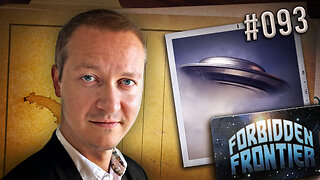 2:18:05
2:18:05
Nerdrotic
13 hours ago $10.10 earnedInvestigations into the Unknown with Micah Hanks | Forbidden Frontier #093
89.8K13 -
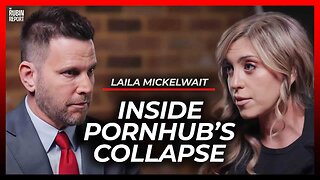 18:54
18:54
The Rubin Report
17 hours agoHow One Woman Outsmarted Pornhub & Exposed Its Dark Secrets | Laila Mickelwait
180K138 -
 LIVE
LIVE
Major League Fishing
5 days agoLIVE! - Bass Pro Tour: Stage 3 - Day 4
693 watching -
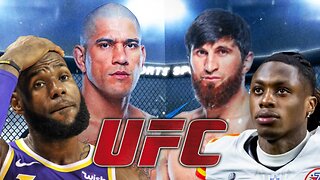 1:05:28
1:05:28
Sports Wars
20 hours agoLebron GOES OFF Over Bronny Hate, Pereira LOSES Belt To Ankalaev At UFC 313, Xavier Worthy Arrested
116K19